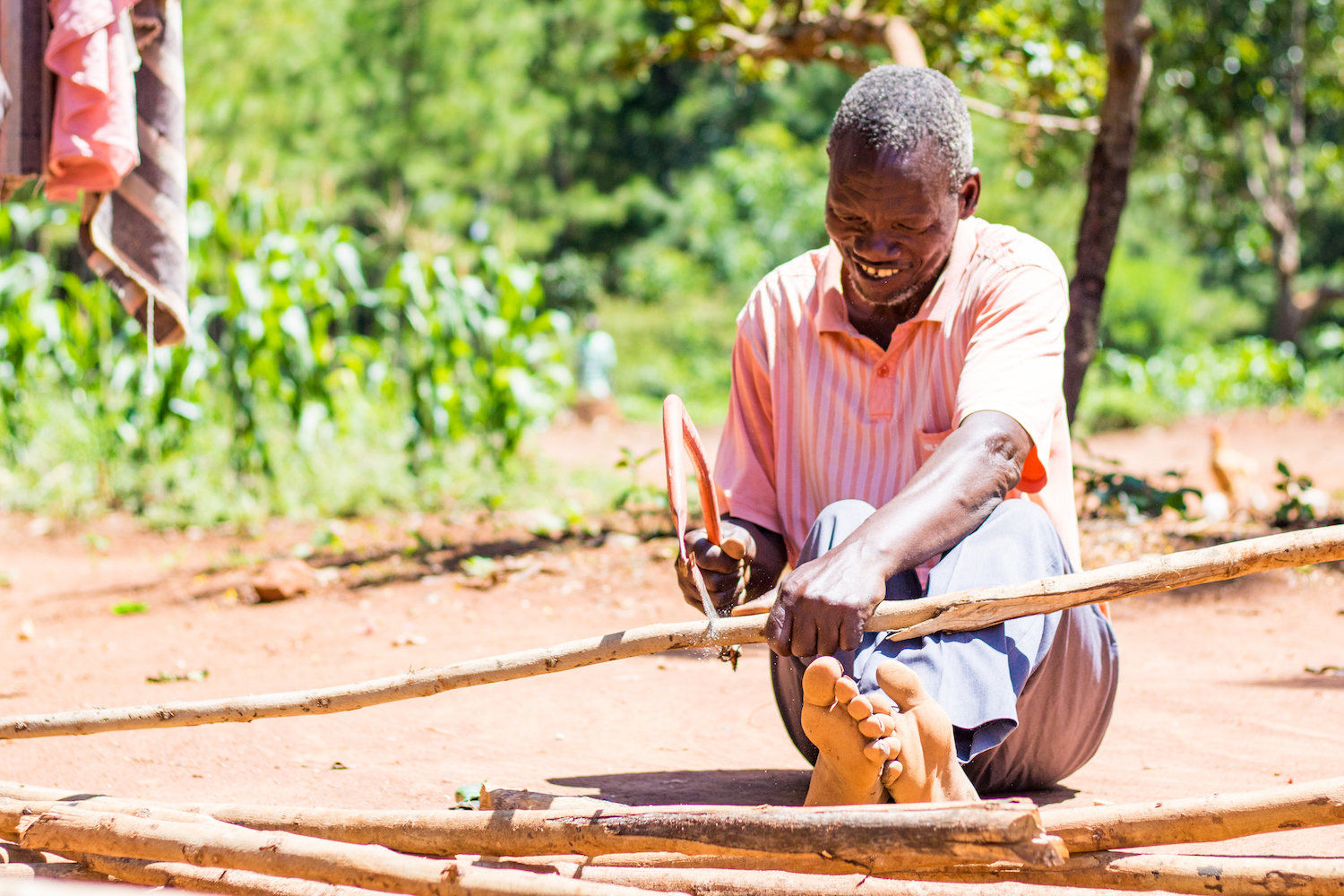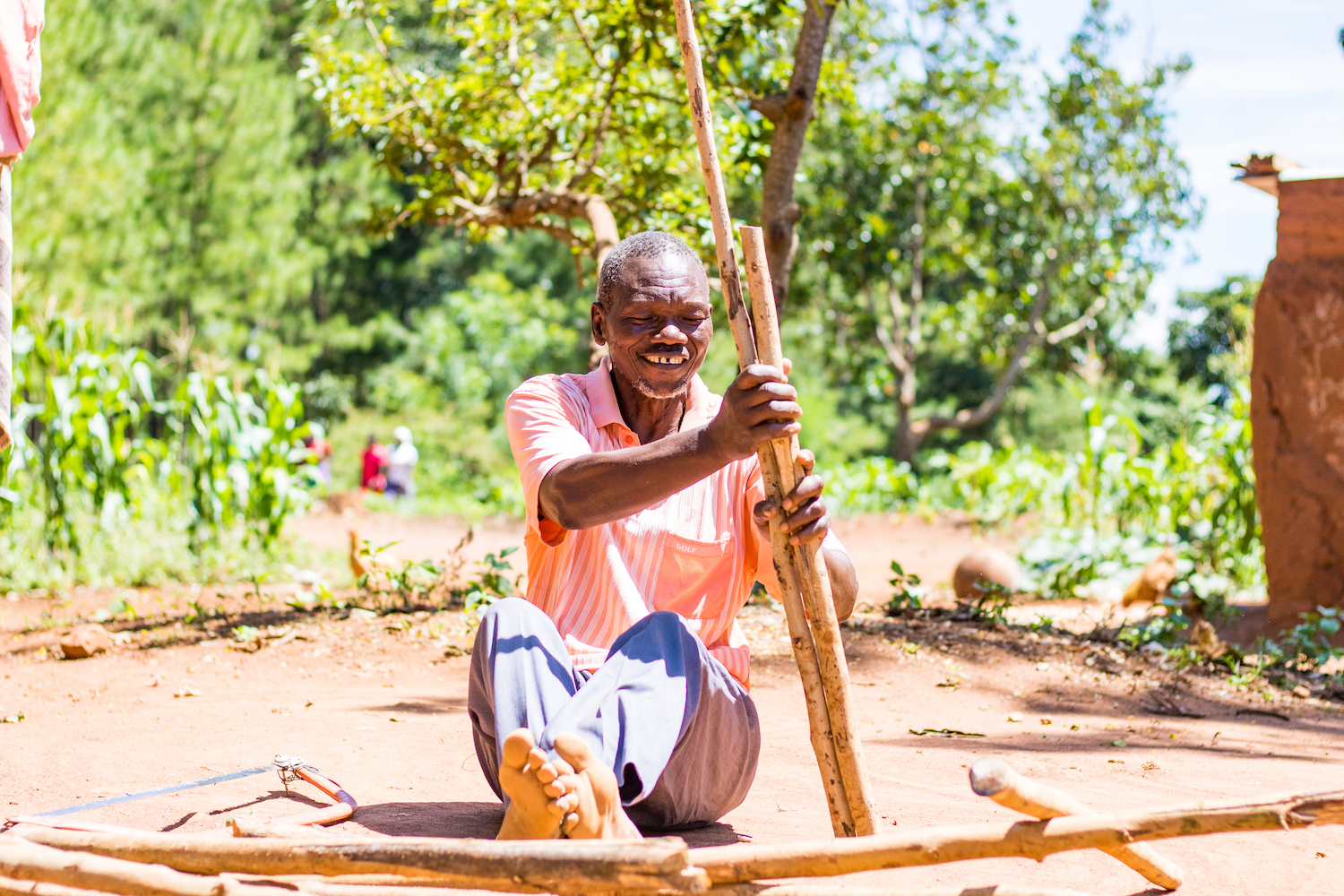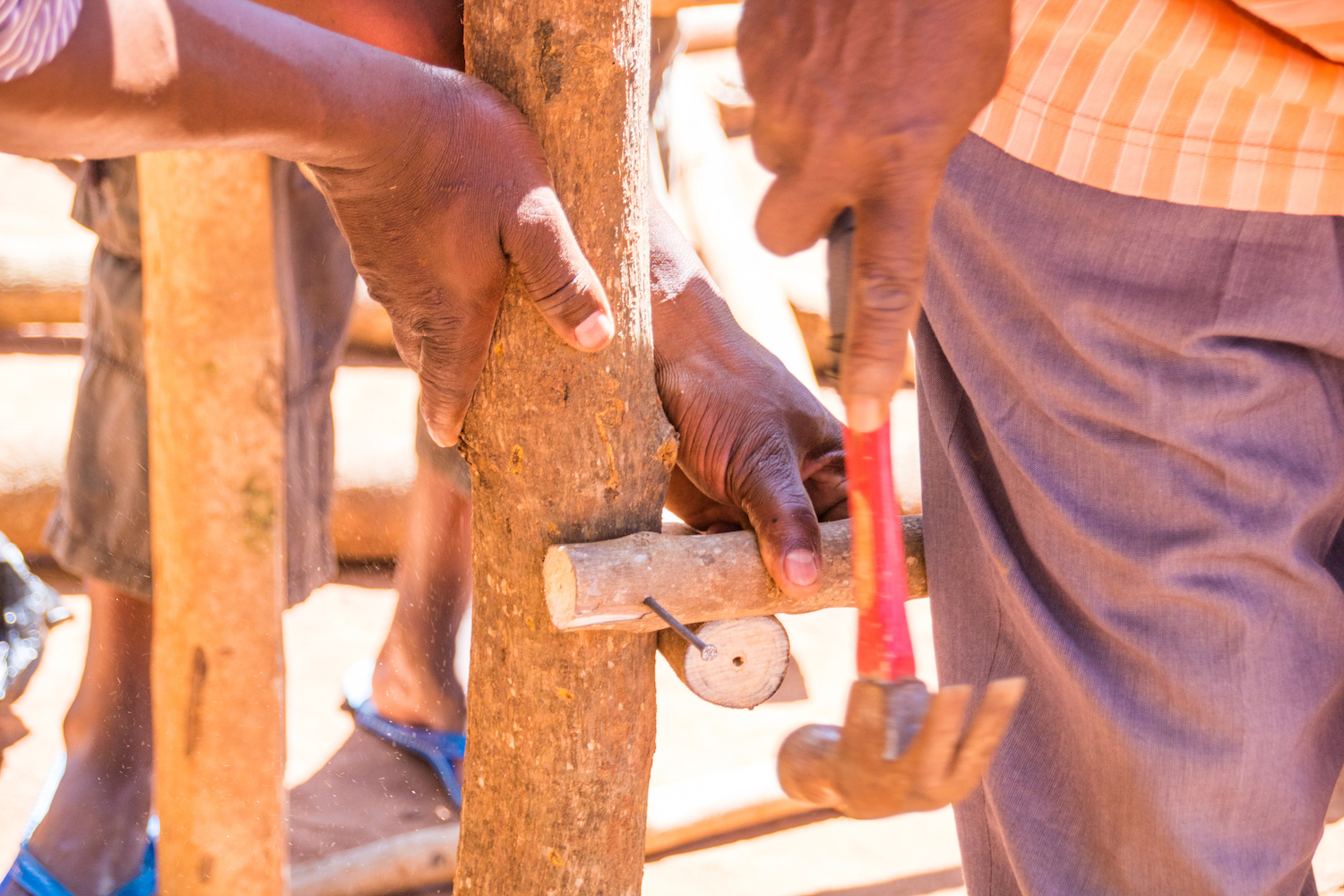3 awesome life hacks that will transform your community (if you live in the villages of Busoga, that is)
Life hacks are all about making life easier and better. In Busoga, that means working with our WASH staff to build better dish racks, hand-washing stations, as well as other facilities that improve lives in our partner communities. Luckily, our staff is always innovating and personalizing its curriculum to be more effective. For those in Busoga or beyond, here are three things we taught the community in Mpumiro village to make staying clean easier.
Life hack #1: Keep termites at bay with portable dish racks!
Dish racks are key to a healthy home. They help create physical distance between dishes and livestock, and they ensure that dishes are completely dry before they are used again. A standard dish rack has its legs firmly planted in the ground, and each piece of wood is individually nailed into place, so that it is strong and sturdy enough to withstand both daily use and the harsh storms that often come through this region.
Recently, though, our WASH team noticed more and more dish racks that were eaten by termites. Their solution: Make it portable! Simply take your existing dish rack and cut off the bottoms of the legs. Now, you can move the dish rack whenever termites get too close.
2) Life hack #2: Tired of paying for nails? This new dish-rack design uses as few as possible.
The cost of nails can really add up for rural community members when going through our WASH curriculum. A typical dish rack, for instance, uses almost 150 nails.
After sketching up several options with the staff, our WASH co-manager Tom Ngobi spent his free time and his own money to build a new type of dish rack — one that uses only 32 nails without compromising on strength and rigidity. When the WASH team saw that it was a success, they took the model to Mpumiro village to demonstrate how to build the dish rack that is more affordable and less susceptible to termites.
A supporting beam holds the poles that serve as the shelves of the dish rack, and when those are nailed into place, the loose poles are sturdy and steady without needing to be individually nailed into place. This model of dish rack is also easier to repair. Because there are fewer nails, only a couple need to be removed to replace a damaged pole!
3) Life hack #3: Lose the tippy tap.
Tippy taps are a type of handwashing facility advocated by organizations around the world. In its most common form, the user steps down on a stick tied by a rope to a jerry can, which then pours water to use for handwashing. It’s a hands-free design that is a huge improvement for many community members.
However, our WASH staff noticed that many people in our partner villages built tippy-taps, but weren’t actually using them very much. WASH found out that many people, especially children, thought it was too difficult and time-consuming to untie an empty jerry can, bring it to the water source to fill, and take it back to the station to tie it back onto the tippy-tap.
Others also found that when they left the jerry cans out overnight, people would steal them off their tippy-taps, causing them to give up on handwashing altogether either out of frustration or not being able to afford another jerry can.
So our WASH staff came up with a new idea. Instead of a tippy-tap, people can use a permanent handwashing stand for the jerry can made out of brick, mud, and a little cement. This station is sturdier than the wooden tippy tap and makes it easier to remove the jerry can to be refilled or brought in for the night.
The Mpumiro community loved the idea, and they were excited to try out the new station in their community. Sometimes the simpler solution is the better one!
Without imagination and collaboration, our staff wouldn’t be able to serve our partner villages nearly as well. Working together to come up with creative solutions to big and small problems — that’s the Kibo Way.











